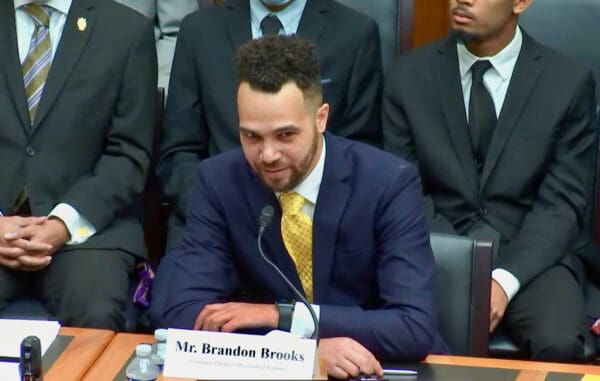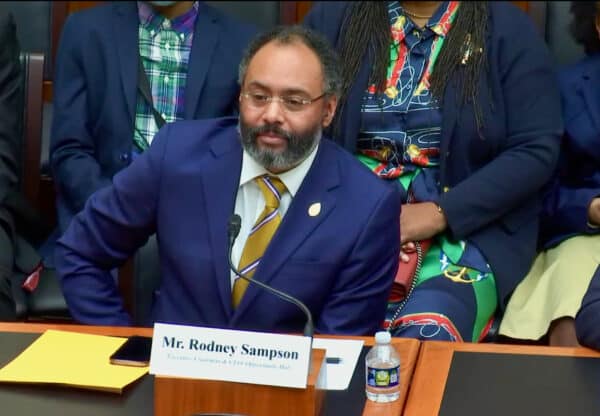Expanding Access to Capital Act of 2023 is JOBS Act Improvement Legislation
Last week during a hearing of the House Subcommittee on Capital Formation, a discussion focused on improving access to capital for early-stage firms as well as boosting retail investment options. Entitled A Roadmap for Growth: Reforms to Encourage Capital Formation and Investment Opportunities for All Americans, the hearing struck a bipartisan tone – unique in the current environment – which may see some legislation actually move to the House floor for a vote.
The witnesses participating in the hearing were across the board supportive of new legislation the subcommittee was proposing – with the exception of a representative from NASAA [the North American Securities Administrators Association]. Melanie Senter Lubin, from the Maryland Securities Commission, speaking on behalf of NASAA, claimed the bills would do the opposite of their intended goals, urging Congress to “abandon” many of them.
NASAA has long held anti-capital formation views based on investor protection concerns. Another worry of NASAA includes the fear that new legislation could limit state authority when it comes to securities oversight. At the same time, no one has ever diminished the important role of state fraud responsibilities.
The entrepreneurs and advocates testified in unison about the need to improve capital markets and improve opportunities for retail investors – a message that garnered traction with both Republicans and many Democrats.
During the hearing, Joel Trotter, a Partner at Latham & Watkins, noted the precipitous decline of initial public offerings (IPOs) driven by aggressive regulation by the SEC, making “public companies face higher compliance burdens than ever before.” The ongoing rule-upon-regulation approach by the SEC can, at times, be oblivious to the cost to the economy, impeding innovation, economic growth, and prosperity.
Trotter lauded the bipartisan JOBS Act of 2012 while recommending there should be NO SEC rulemaking as the Commission tends to slow things down (Note: it took the SEC about four years to allow Title III of the JOBS Act or Reg CF to be an option for issuers). Trotter said the regulatory burden is expected to increase in the near term if the SEC approves the climate disclosure rule. Trotter added that the SEC has a tendency not to meet deadlines.
The one policy most everyone agreed on is the current onerous definition of an accredited investor.
Rodney Sampson, an entrepreneur and founder and CEO of the Opportunity Hub – and longtime proponent of securities crowdfunding, who has voted Democrat all his voting career, said he supports the Republican-led legislation to improve access to capital, decrying the accredited investor rule as disenfranchising black investors.
“I don’t see a lot of legislation blocking people from buying Yeezys or going to Vegas. I think you should be able to invest in your frat brothers’ business.”
A test or domain experience was discussed for being deemed an accredited investor, as the wealth metric does not represent a person’s ability to invest.

Brandon Brooks, Founding Partner of Overlooked Ventures, called the current definition of an accredited investor asinine, describing what the SEC wants to do as an “overstep of their power.” Brooks went on to emphasize his disagreement with the current rule describing it as “asinine, asi-ten, asi-eleven.” Brooks told the Committee, “Who [on the Committee] has put in the work to understand the challenge of being a black founder?”
Henry Ward, CEO and founder of Carta, recommended that Reg CF, Reg A, and Reg D – be merged, simplifying the capital raising process. He also shared how he had to move to California to start his business due to the concentration of capital in the bay area – as geography matters – something the SEC appears to ignore.
Ward also recommended that Finders [individuals who match money to entrepreneurs] be rationalized as opposed to the obtuse approach today.
While several Democrats on the Committee appear to align with Lubin, others embraced the need to assist entrepreneurs and rationalize access to opportunity.
Tomorrow, the House Financial Services Committee will hold a markup session – the next step in moving legislation forward. These bills include improvements to the definition of an accredited investor, adding an examination for individuals to qualify.
More comprehensively, there is the Expanding Access to Capital Act of 2023 that incorporates a micro-exemption, an increase to the funding cap of Reg A+ – to $150 million, Finders, qualifying venture funds, and more.
The legislation that is going through markup is available here, including desriptions.
1. H.R. 835, the Fair Investment Opportunities for Professional Experts Act (Hill)
2. H.R. 1579, the Accredited Investor Definition Review Act (Huizenga)
3. H.R. 1548, the Improving Access to Small Business Information Act (Kim)
4. H.R. 2792, the Small Entity Update Act (Wagner)
5. H.R. 2797, the Equal Opportunity for All Investors Act (Flood)
6. H.R. 2793, the Encouraging Public Offerings Act of 2023 (Wagner)
7. H.R. 2610, a bill to amend the Securities Exchange Act of 1934 to specify certain registration statement contents for emerging growth companies, to permit issuers to file draft registration statements with the Securities and Exchange Commission for confidential review, and for other purposes (McHenry)
8. H.R. 2608, a bill to amend the Federal securities laws to specify the periods for which financial statements are required to be provided by an emerging growth company, and for other purposes (McHenry)
9. H.R. 1807, the Improving Disclosure for Investors Act of 2023 (Huizenga)
10. H.R. 2795, the Enhancing Multi-Class Share Disclosures Act (Meeks)
11. H.R. 2593, the Senior Security Act (Gottheimer)
12. H.R. __, the Middle Mark IPO Act (Himes)
13. H.R. 2796, the Promoting Opportunities for Non-Traditional Capital Formation Act (Waters)
14. H.R. 2798, the Expanding Access to Capital Act (McHenry)
15. H.R. 2799, the CFPB Transparency and Accountability Reform Act (Barr)


